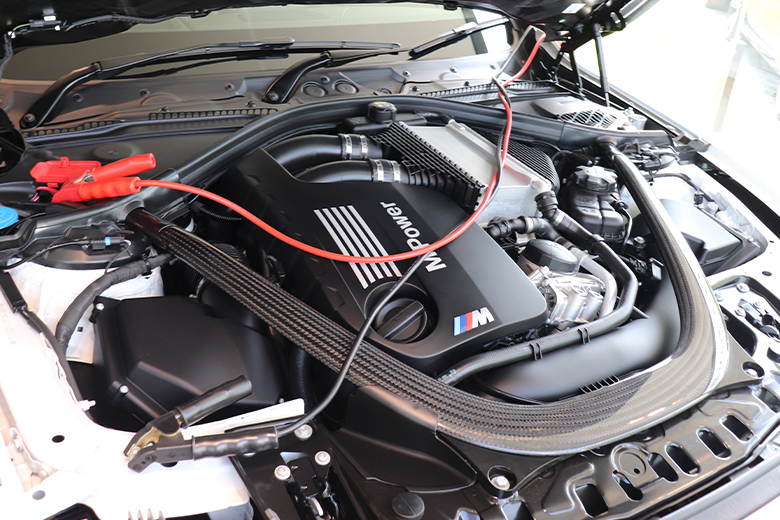BMW M4 Engine Overheating - Causes and Solutions

October 8, 2024
BMW M4 Engine Overheating: Key Causes and Effective Solutions
The BMW M4 engine is well-known for its powerful performance and thrilling driving experience. However, high-performance engineering could bring complications, such as engine overheating. If not treated, overheating may seriously harm the engine and reduce performance. Owners of this sporty coupe should be warned of possible problems. This will allow them to fully experience the power of the BMW M4 engine without experiencing breakdowns.
It's crucial to know the causes of the BMW M4 engine overheating. This will help maintain peak performance and avoid costly repairs. Many factors can cause rising engine temperatures. These consist of cooling system malfunctions and broken components. This article focuses on the common causes of the BMW M4 engine overheating. We provide solutions to maintain the smooth operation of your vehicle.
Understanding the BMW M4’s Engine
The BMW M4 boasts an outstanding inline-six turbocharged engine, especially in its most recent models. It is well known for having outstanding torque and horsepower. However, while this engine is working severely, it generates a lot of heat. The M4 is powered by a high-performance cooling system. Engine temperature is controlled by coolant, fans, and radiators. But if certain components break down or are neglected, the system could overheat.
Common Causes of Overheating
Coolant Issues
Coolant, also referred to as antifreeze, is crucial for regulating engine temperature. The radiator absorbs and subsequently releases heat from the engine. If there are leaks, evaporation, or inadequate maintenance that causes the coolant level to drop, the engine may overheat. Also, it can become less effective if the wrong coolant or mixing type is utilised.
Thermostat Failure
The thermostat is a key part. It regulates coolant flow through the engine. If it gets stuck closed, the coolant won't circulate. This will raise engine temperatures. A stuck-open thermostat can cause the engine to run too cool. This results in poor performance.
Radiator Problems
The radiator cools the coolant before it enters the engine. If the radiator is clogged, damaged, or has a defective fan, the coolant cannot be cooled. This might cause the engine to overheat, particularly in traffic or during high-performance driving.
Water Pump Failure
The water pump circulates coolant throughout the engine and radiator. If the pump fails, coolant circulation stops, leading to localised overheating. A failing water pump may cause coolant leaks, strange noises, or an overheating engine.
Oil Issues
In addition to lubricating engine parts, engine oil helps in heat dissipation. Pump failure, old or contaminated oil, or low oil levels can all hinder cooling and lubrication. This might lead to overheating. To ensure the best possible engine performance, routine maintenance and oil changes are necessary.
Airflow Restrictions
The engine relies on a steady flow of air for optimal combustion. Obstructions in the air intake or a clogged air filter can restrict airflow. This can cause inefficient combustion and increased heat. Ensuring that the air intake system is clean and unobstructed is vital for engine health.
Excessive Load and High Performance
The BMW M4 is designed for driving at high speeds. On the other hand, heavy luggage or towing can overload an engine and cause it to overheat. In addition, your engine may overheat if you drive fast for extended periods of time without stopping.
Solutions for Engine Overheating
Regular Maintenance
The easiest way to avoid overheating is to do regular maintenance. Check the coolant levels often and look for leaks. Make sure to flush and change the coolant at the intervals specified in the owner's handbook. Changing the oil and filter on a regular basis keeps the engine well lubricated and efficient.
Monitor Engine Temperature
Keep an eye on the dash's temperature gauge. Act quickly if it enters the red zone. When you come to a safe stop, turn off the engine and allow it to cool. Driving an overheated engine for longer than necessary could be quite damaging.
Inspect the Cooling System
Regularly inspect the cooling system components, including the radiator, thermostat, and water pump. Look for any signs of leaks, corrosion, or damage. If any component appears faulty, replace it promptly to prevent further issues.
Flush the Radiator
The efficiency of the radiator may decrease over time as a result of dirt and debris buildup. Removing these blockages with a radiator flush can assist in guaranteeing peak cooling efficiency. This should be done at regular intervals, as indicated in the owner’s manual.
Upgrade Performance Parts
If you frequently drive at high speeds, upgrade to a high-performance radiator and water pump. These parts can withstand higher temperatures and cool better. They reduce the risk of overheating.
Driving Habits
Changing one's driving style could help in avoiding overheating. Stay away of rapid acceleration and prolonged idling, especially during the summer. Make sure the loads on your M4 aren't too high since this could put stress on the engine.
Seek Professional Help
If, despite your best efforts, the overheating continues, get in touch with a BMW specialist or a licensed technician. They are qualified to determine the issue and repair or replace the cooling system in the vehicle.
To Conclude
The BMW M4 is a great car. It needs regular maintenance, especially for its cooling system. Know the causes of engine overheating. Take steps to prevent it. This will keep your M4 running smoothly and at peak performance. Regular inspections, timely replacements, and mindful driving can all help. They can keep the engine cooler and more efficient.